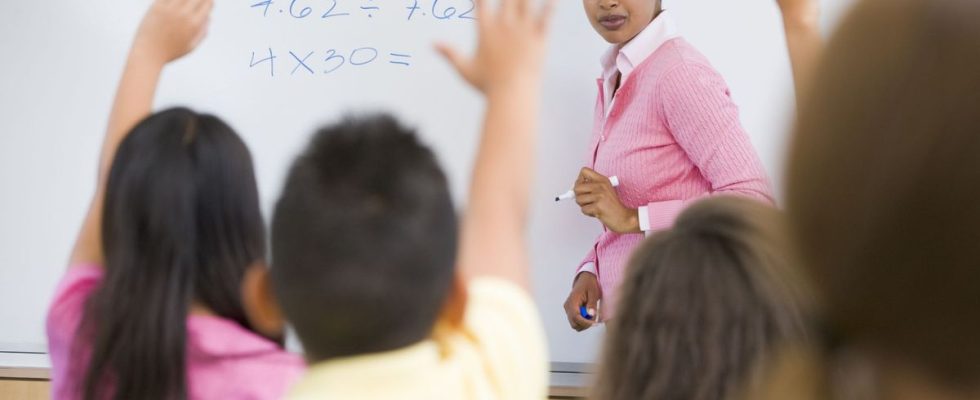French and mathematics are the stars of French education. France is the OECD country which devotes the largest share of school time to these fundamental lessons, according to a report published this Tuesday. However, the results of French students leave something to be desired in international rankings.
France also stands out for its school calendar, which has 16 weeks of vacation (compared to 13 on average in the OECD), including 8 “intermediate” vacations, the longest duration in the OECD countries for these “small holidays”, with those of the French Community of Belgium. On the other hand, the length of summer vacation, recently called into question by Emmanuel Macron, is only eight weeks, compared to nine on average in the countries of the international organization, according to the annual OECD report. Perspectives on education”.
Focus on the fundamentals
Concerning the fundamentals, the OECD highlights that nearly 60% of school time in French elementary schools is devoted to reading comprehension (reading, written expression and literature) and mathematics, compared to 41% on average in the OECD. In detail, 38% of time in France is devoted to reading comprehension, and 21% to mathematics, compared to 25% and 16% respectively for the OECD.
Behind France, only four other countries devote at least 30% of their time to reading comprehension (Slovakia, Lithuania, Turkey and Austria), with Slovakia and Lithuania also devoting half of their time to fundamentals. However, the emphasis placed on these lessons was recently reaffirmed by the government: the new French Minister of Education Gabriel Attal once again promised for this school year to “put the emphasis on fundamental knowledge”.
The disappointing ranking of the little French people
He presented new measures in this direction (two hours per day of reading in CP, at least one written production per week in CM2), after already announcements last year. “I want a shock of knowledge for our country, and in particular a shock of fundamental knowledge,” he reaffirmed Tuesday during the OECD press conference.
The minister stressed that this subject was one of his “priorities”, to ensure that “each student acquires the fundamentals in primary school”. “We still have a way to go,” he added. Because, paradoxically, France does not excel in these areas in international rankings. According to the latest international Pirls study, published in May, the reading and comprehension skills of French schoolchildren in CM1 remained below the European average in 2021, even if they have stabilized.
Class size and teacher training
And according to the 2020 TIMSS study, its counterpart in mathematics, French children remain at a “much too low” level in mathematics, appearing among the worst in the European Union. For Eric Charbonnier, education expert at the OECD, “we spend a lot of time in France doing fundamentals. And yet, when we look at the international rankings, we are doing worse than the average of European countries.”
“It should make us think about the fact that everything is not necessarily just a question of quantity” and that a “more qualitative approach” could be considered, he added. “The challenge is to already have better use of the existing timetable, so that also means that all students have a teacher in front of them, that those who are in difficulty have possibilities for remediation,” explains he. The expert also points to “a teacher training problem” or “class sizes among the highest in OECD countries” in kindergarten (22 children per class in 2021, compared to 14 in the OECD), which “ harms the quality of learning.

